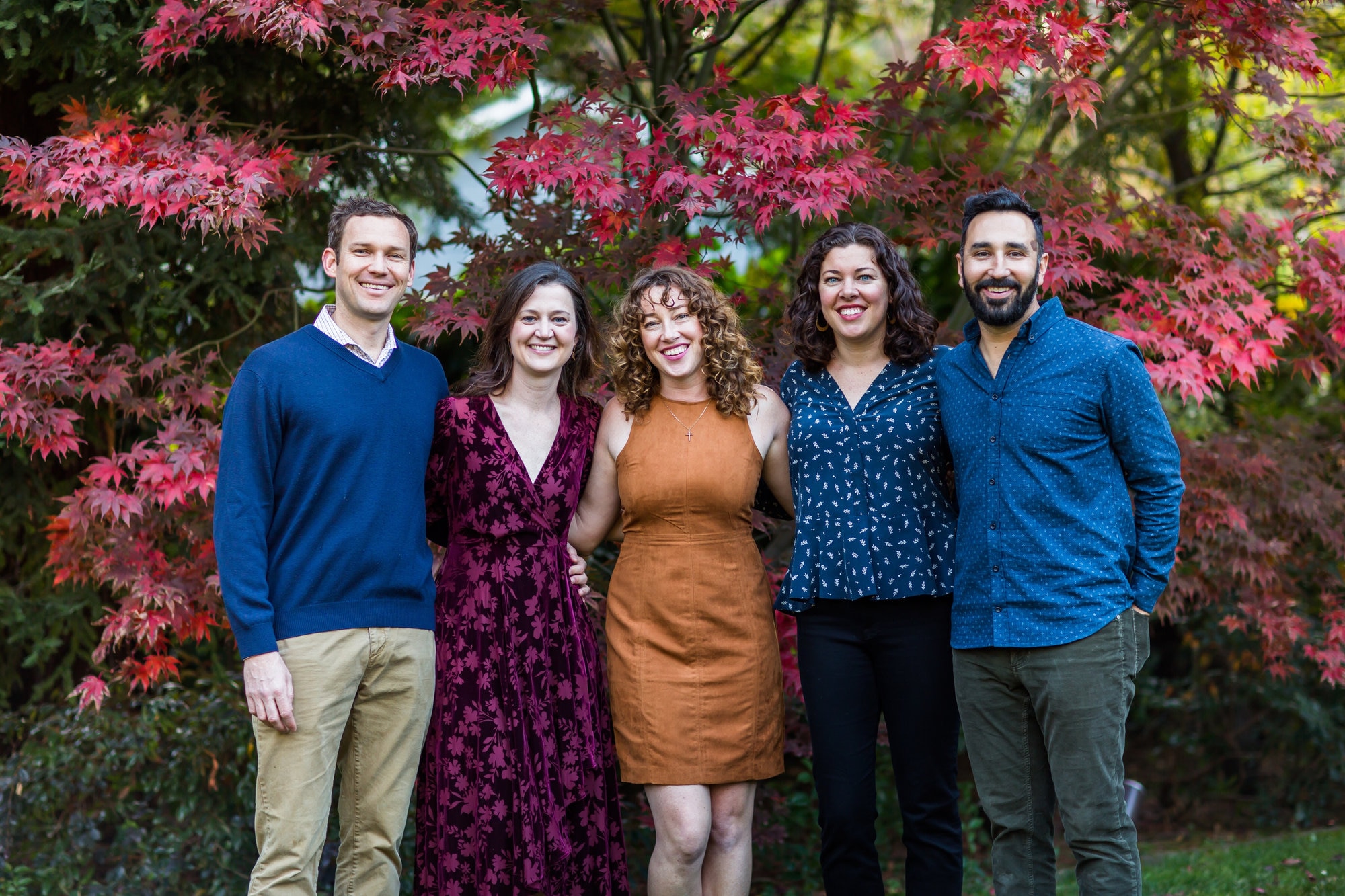How one family gave quickly and effectively during crisis
When the pandemic hit, the Younger family was ready.

In the first waves of the COVID-19 pandemic, one family deployed half a million dollars to help the most vulnerable—within days.
As charities saw the need for their services spike, the grants recommended by the Younger Family Fund went to trusted organizations helping some of the groups who were hardest hit, including newly unemployed workers, domestic violence victims and people experiencing homelessness.
The family also chose to recommend grants from the Giving Account to local community foundations for the first time, unrestricted gifts with a single directive: For COVID-19 relief.
“We wanted to do something fast, and we needed to have humility to recognize that our giving will never be perfect—that since we had the funds to give away, we needed to do that now,” said Julie Aleman, the fund’s executive director and one of the siblings who advises on how the fund is spent.
To ensure that their quick decisions directed money to the right organizations, the family relied on trusted sources of philanthropic advice, including Fidelity Charitable’s giving guidance. They also found a compass in the mission statement they drafted together years earlier: “We exist to support outstanding leaders and their nonprofits to improve the lives of vulnerable people around the globe.”
"It didn't shift us away from our ongoing commitments to other nonprofits—we just wanted to focus on what we can do right now to meet an immediate need when a timely response is so important,” said William Younger, Aleman’s father and the founder of the fund.
Now is not the time to hold onto money, Younger says.
Preparing to give as a family
The managing director of a venture capital firm in Palo Alto, Younger designed the fund’s family-forward granting structure to value the input of his children and encourage them to practice generosity as they became adults.
“I wanted them to be aware of what expectations they should have about wealth and to pass on my philosophy on money and giving,” Younger said.
Philanthropy education started early in the Younger family, thanks to a generations-long family Christmas tradition. Each year, Aleman’s grandfather mailed her a $20 bill and told her to use it to help someone, then report back. Her grandfather did the same for all of his six grandchildren, writing up their $20 of philanthropy into an “annual giving report” and sending it around to their extended family.
Fast-forward a couple of decades, and every fall sees a philanthropy-focused Younger family mini-reunion that they’ve dubbed the “Sibs Trip”: Aleman, her husband Nathan, her siblings Kelly and Mark Younger, and Mark’s wife, Ashley, meet to reconnect on their giving values and review grant applications submitted by selected nonprofits by request earlier in the year. They forward their choices to their parents for final decisions.
“My dad said early on that he wanted to spend down his wealth in his lifetime, using it to help others,” Aleman said. “He’s always found ways to encourage us to be generous.”
Giving in the time of COVID-19
The Youngers have given in response to current events crises in the past, but—of course—none of them had previous experience with maximizing philanthropic impact during a global pandemic.
“It’s very obvious who is suffering around me just by walking down the street in San Francisco, seeing so many people without homes,” Aleman said. “And there’s something we can do about that, so we wanted to take action in our own community.”
For COVID-19 relief, the siblings recommended local organizations like Bay-area domestic violence center La Casa de las Madres and LifeMoves, which helps homeless families and individuals in San Francisco. They recommended grants to some carefully chosen organizations that work both nationally and internationally, like Give Directly, which gave cash grants to SNAP recipients in the U.S. who lost their jobs during the pandemic and couldn’t pay rent. The Youngers also turned to community foundations for the first time, looking for experts in on-the-ground needs and giving to the Latino Community Foundation, the San Francisco Foundation and the Silicon Valley Community Foundation.
“What really helps us do this is having a donor-advised fund,” Aleman said. “We have a lot of flexibility, we’re nimble and we can make decisions really quickly.”
Looking ahead
The fund’s next round of grant recommendations would usually come in the fall. This year, however, they’re being flexible about deadlines and about who can apply. Their main goal this year is to stay responsive and listen to what grantees need.
“We’re recognizing that this isn’t ending—I don’t know what this will look like for us even months down the line,” Aleman said. “But we can listen to what communities need and be flexible.”
Check out our list of organizations offering relief and support services for immediate medical needs and international aid.
This testimonial and the statements and opinions expressed in this article are based on an interview with Julie Aleman who provided permission to use her name (and the name of her firm). This testimonial statement is not indicative of future programs and/or services and may not be representative of the experience of all donors.
This testimonial and the statements and opinions expressed in this article are based on an interview with William Younger who provided permission to use his name (and the name of his firm). This testimonial statement is not indicative of future programs and/or services and may not be representative of the experience of all donors.
Want more info before you open a Giving Account?
Sign up to receive occasional news, information and tips that support smarter philanthropic impact through a donor-advised fund.
How do I give quickly and effectively during crisis?
Tips from Julie Aleman, Executive Director of the Younger Family Fund
Figuring out the most effective ways to give during a crisis can be daunting. Julie Aleman, Executive Director of the Younger Family Fund, gives this advice: Listen to nonprofit leaders, and trust their insights on what’s needed. Act quickly and give unrestricted funding. And talk with your family or community about giving together to multiply your impact.
“In this time when things can be really isolating and depressing, giving serves a double purpose, because it’s taking action and it feels good to give,” Aleman said. “Giving together has created a lot of connectedness in our family—we are proud to be participating in this together.”
How Fidelity Charitable can help
Since 1991, we have been a leader in charitable planning and giving solutions, helping donors like you support their favorite charities in smart ways.
Or call us at 800-262-6039



